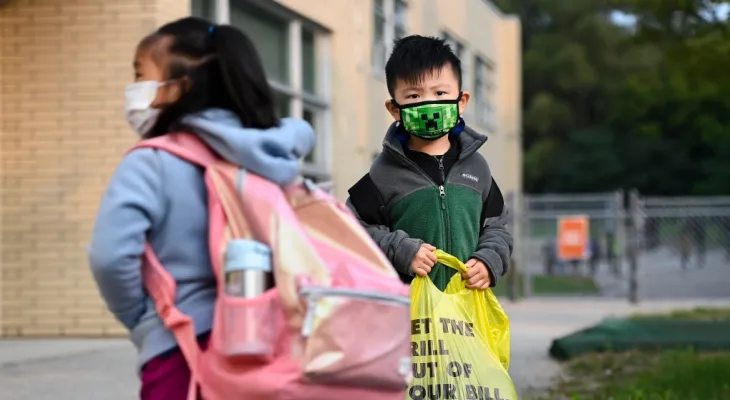Search here
Newspaper
Search here

Arab Canada News
News

Published: December 29, 2023
A new study conducted by Canadian researchers found that rates of long COVID among children are much lower compared to adults.
The study, titled "Post-COVID-19 Condition in Children 6 and 12 Months After Infection," was published in the peer-reviewed journal JAMA Network Open on Thursday. It examined the proportion of children exhibiting symptoms meeting the definition of long COVID, also known as post-coronavirus condition. The researchers looked at a group of over 5000 Canadian children from pediatric emergency departments and followed up with the children after 90 days, six months, and 12 months.
The study states that the World Health Organization defines the post-COVID condition in children as symptoms that develop within three months of COVID-19 infection, persist for at least two months, and "limit daily functions and check developmental milestones."
In the six-month follow-up, six out of 1152 children with positive tests had symptoms meeting the definition of long COVID, while four out of 3995 children with negative tests met the definition. After 12 months, there were eight out of 1192 children with positive tests and seven out of 4371 children with negative tests who met the definition.
Additionally, the researchers also measured any decline in quality of life among the children and found that the overall quality of life among children confirmed to have COVID-19 did not differ significantly from those who tested negative.
It is unclear how common long COVID is among adults infected with SARS-CoV-2, but according to the researchers, estimates made in various studies range between 7.5 percent and 45 percent.
By comparison, the researchers noted that "very few infected children" develop post-COVID condition, as only 0.67 percent of children in the infected group met the definition of long COVID.
This contrasts with some previously published research, such as a 2022 study in Germany, which found the prevalence rate of "moderate or severe" post-COVID symptoms among teenage girls was 32 percent. However, the Canadian researchers indicate that their study is the first to use the World Health Organization's agreed-upon definition for post-coronavirus condition in children.
The researchers acknowledged some limitations of their study, notably stating that they were unable to follow up with 30 percent of eligible participants, and that children who participated in the follow-ups were more likely to have been infected with the Omicron variant, which is "less strongly" associated with long COVID. Additionally, 80% of participants in the study were under eight years old, meaning the results may be "less generalizable to older children," the researchers wrote.
Comments